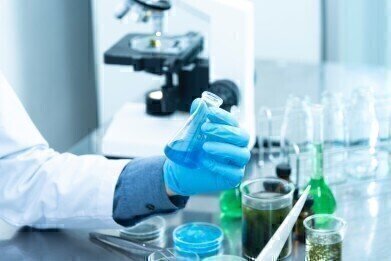News & Views
What is Green Chemistry? And Why is it Important?
Dec 03 2014
With mounting concerns over the state of our planet, it’s becoming critically important that we reduce our environmental footprint. As ever, science is well ahead of the curve in that respect. In fact, scientists have been considering how to reduce waste and hazardous substances for more than 30 years.
The idea goes back to a well-respected chemist named Trevor Kletz, who revolutionised the way we think about manufacturing – and in particular, how we react to accidents in the workplace or laboratory. Rather than being viewed as unfortunate but inevitable by-products of innovation, Kletz tried to put in place practices which would ensure they never happened to begin with. Such a philosophy came to be known as green science.
The 12 Principles of Green Science
In 1998, the loose idea was formalised by former Environmental Protection Agency (EPA) members Paul Anastas and John Warner, who drew up guidelines in an attempt to maximise efficiency and safety and minimise waste. The 12 points are as follows:
1) Prevention of Waste Creation
It’s much more desirable to prevent waste from existing in the first place than to have to clear it up.
2) Economy of Atoms
Attempting to incorporate as many atoms used in the process into the final product as possible reduces waste.
3) Less Hazardous Chemicals Synthesising
When possible, synthetic methods which do not generate toxic or harmful substances should be designed and used.
4) Less Hazardous Chemicals
Chemicals with minimal toxicity should be designed when possible.
5) Reduced/Safer Solvents
Any solvents or reactants used should be as harmless as possible – or preferably, not used at all.
6) Energy Efficiency
Energy should be taken into account and every attempt made to save it – for example, by conducting experiments at ambient temperatures and pressure where possible.
7) Renewable Raw Materials
If possible, all raw materials and feedstock involved in experiments should be renewable (i.e. agricultural produce or waste material) and not depleting (fossil fuels or other mined substances).
8) Avoid Derivatives
Reduce or avoid altogether processes which may require reagents or additives and which will increase waste.
9) Catalysts
Catalysts are preferable to stoichiometric reagents as they can save energy and avoid unforeseen by-products.
10) Degradable Design
All products should be designed so that after they have fulfilled their function, they can degrade naturally and not endure in the environment indefinitely.
11) Prevention of Pollution
Real-time analyses of processes should be refined so that the escape of hazardous substances can be limited as best as possible.
12) Prevention of Accidents
Using substances that are not toxic or flammable greatly reduces the risk of accidents happening in the laboratory or workplace.
These principles, when adhered to, are a recipe for an efficient and safe environment. They are being put into practice in all walks of science - for example, in the field of chromatography, the technique of computer modelling using state-of-the-art software is helping to reduce energy consumption and time and financial expenses.
Meanwhile, the technique of solid phase extraction (SPE) in gas chromatography has largely replaced liquid extraction, greatly reducing the use of solvents and thereby adhering to principle five. For more information on the latest developments in the application of green chemistry in this particular discipline, see this article: Disposable Pipette tip Extraction - Leaner, Greener Sample Preparation.
Digital Edition
Lab Asia 31.2 April 2024
April 2024
In This Edition Chromatography Articles - Approaches to troubleshooting an SPE method for the analysis of oligonucleotides (pt i) - High-precision liquid flow processes demand full fluidic c...
View all digital editions
Events
Apr 22 2024 Marrakech, Morroco
Making Pharmaceuticals Exhibition & Conference
Apr 23 2024 Coventry, UK
Apr 23 2024 Kintex, South Korea
Apr 23 2024 Seoul, South Korea
Apr 24 2024 Jakarta, Indonesia




.jpg)













